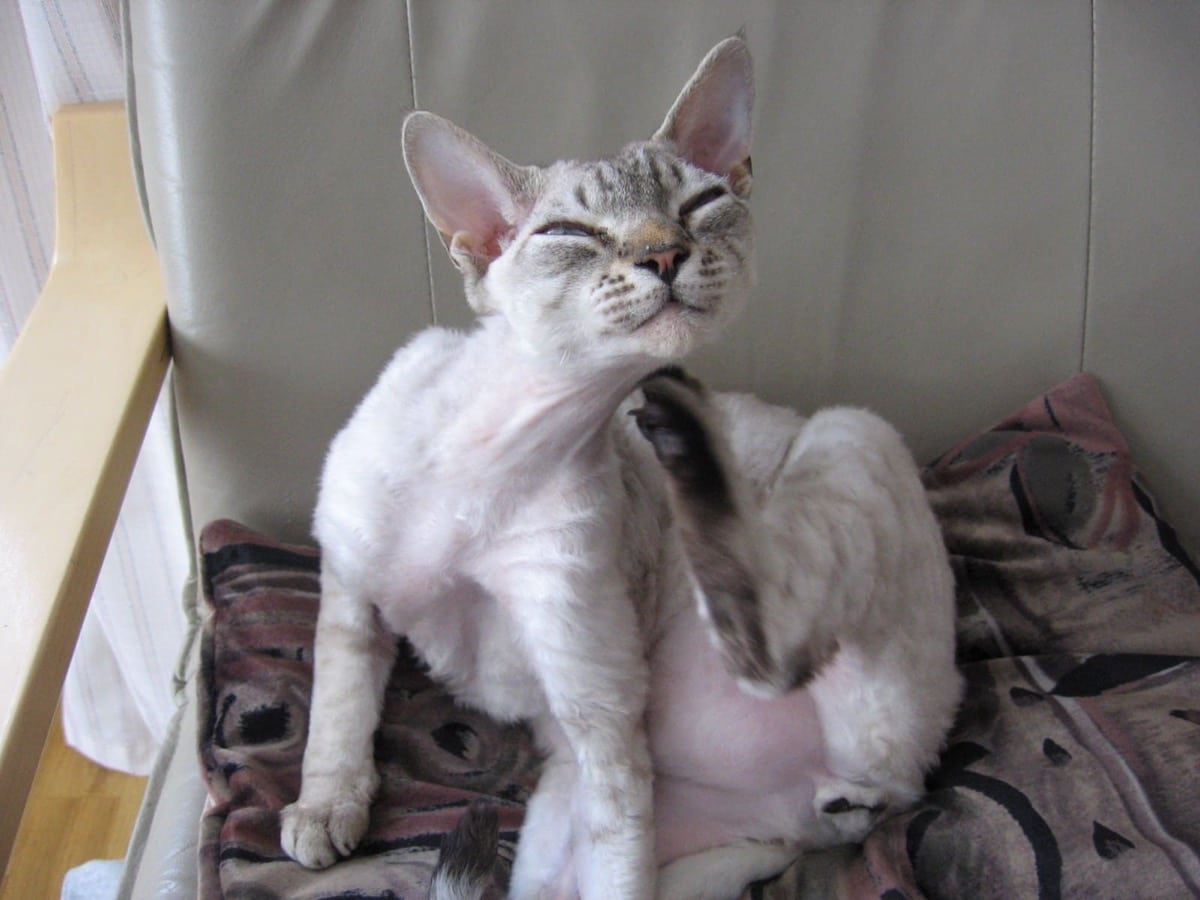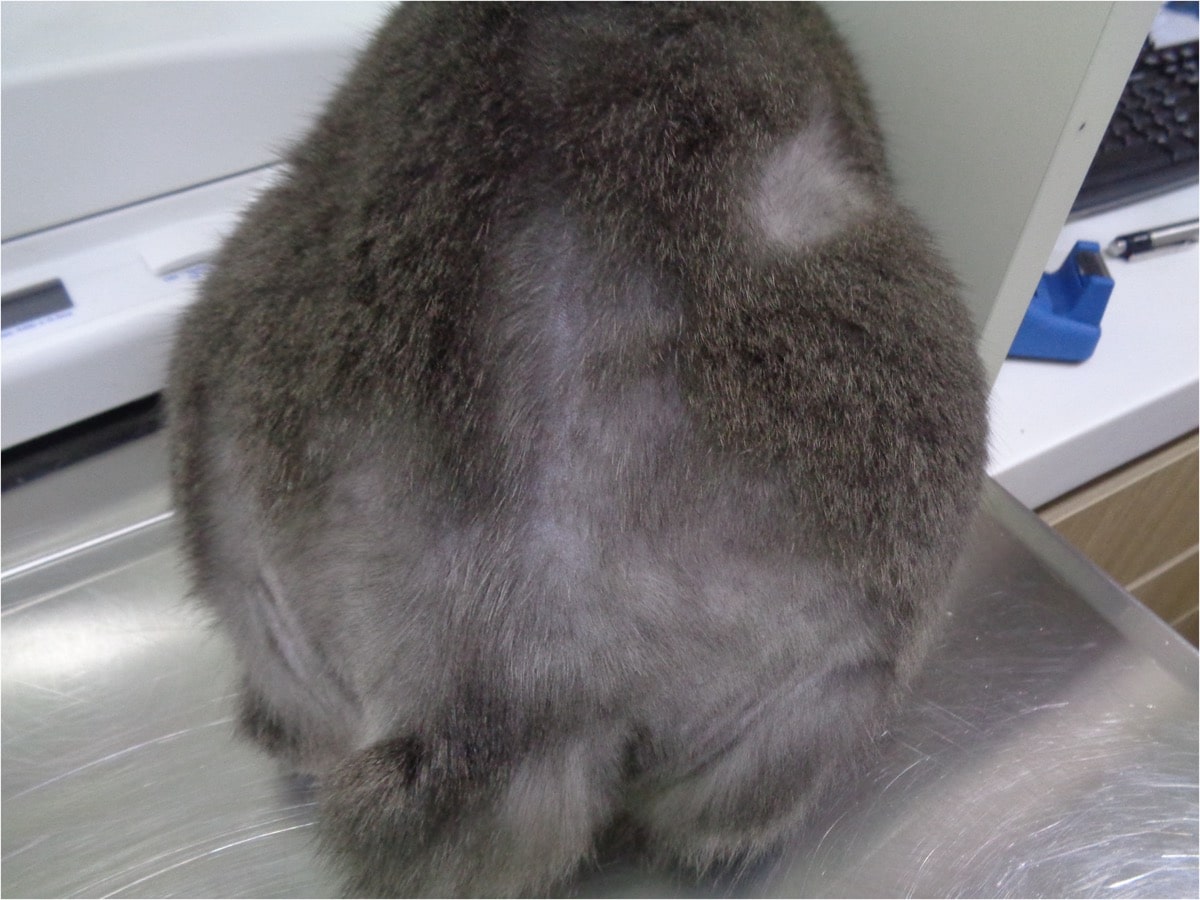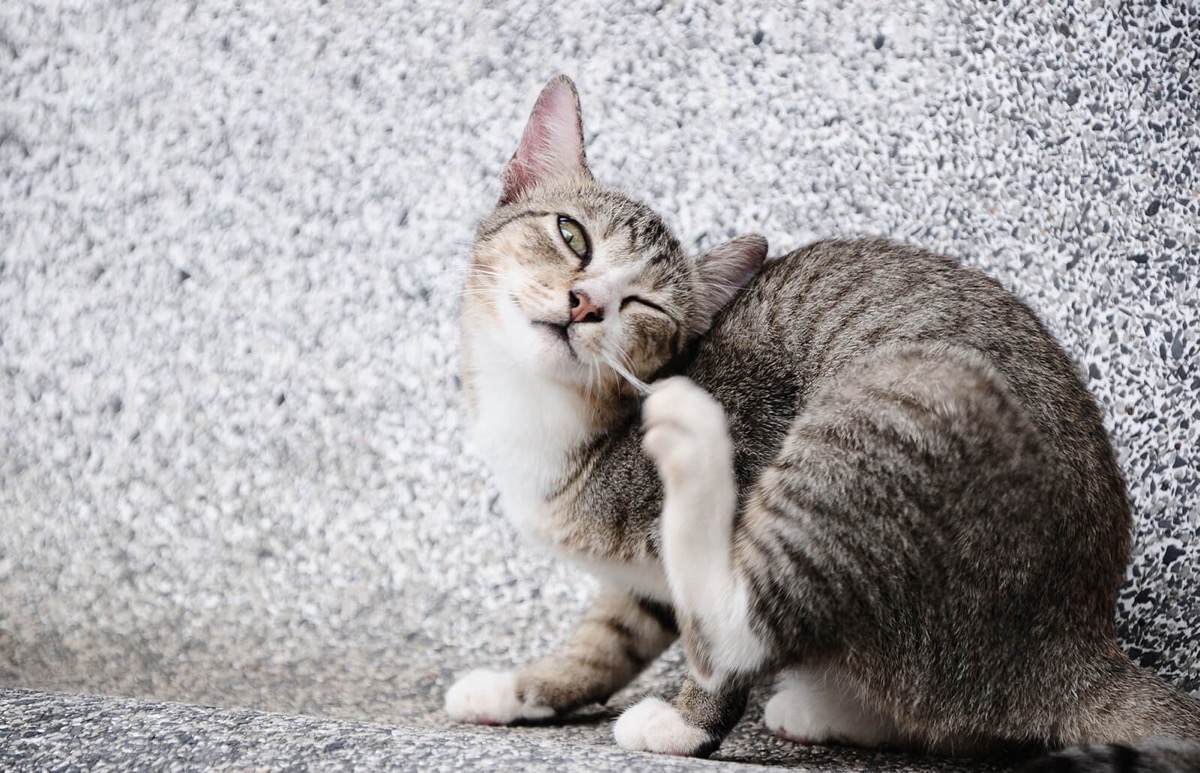
We love our cat very much and we want him to be well always, but sometimes problems arise almost without realizing it, and that is when we really care about his health. One of those nasty surprises is the feline alopecia, that is, that excessive hair loss that can cause baldness in some areas of your body.
Hair loss in a feline can have many different causes such as skin infections (ringworm, parasites) or other reasons. It is quite common that the cat sometimes causes this loss of hair by cleaning itself too much because it feels itchy due to allergies or because it has parasites in its coat.
What are the causes?

There are times that cats that have pain in their joints may also have hairless parts of their body by ripping it off while trying to calm his ailment. Stressed cats can also get alopecia because they groom themselves too much and too many times. This is a sign of stress and if you think your cat has it, you should seek calm again in your home.
On the other hand, when a cat is groomed too much, it can cause it to vomit more hairballs than it should, and even have too heavy digestions by swallowing too much hair in its excessive grooming.
In addition, there are also hormonal problemsAlthough they are rare, they can also cause hair loss in cats, even if they do not itch and they do not pull that hair out.
It is necessary to be aware that there are some causes of feline alopecia, such as ringworm, which can be transmitted to humans and that therefore, it will need to be treated as soon as possible.
As you can see, there are several causes that can cause it, so we are going to see them separately to know how to act. Only in this way, you can act quickly if you think that your cat could be having alopecia for any reason that needs medical assistance as soon as possible.
Do not miss what are the most common causes and so you will know how to act in case something of the aforementioned here is happening to your cat.
Mites
These tiny organisms bite the cat causing a lot of itching. From so much scratching, you can end up with hairless areas. You have to keep the animal very controlled, since mites can cause scabies, and there is one type, ear mange, which is highly contagious both from cat to cat and from cat to human.
The treatment consists of put on antiparasitics that eliminate mites, and in case you have scabies, give the animal medication intravenously so you can delete them.
Allergies
Unfortunately, the cat may also have some type of allergy, the ones that cause alopecia are the food and environmental. The former are due to the intake of certain foods that they cannot digest well, such as cereals that normally contain a lot of feed, and which cause redness of the skin in a small area, but which can spread to the rest of the body.
Inhaling allergens in the environment, such as pollen or dust mites, can also cause alopecia.
The treatment will consist of keep the cat away from that allergen that causes itching and discomfort.
Cushing's disease
It is a glandular disorder characterized by the production of steroid hormones by the adrenal glands. One of the most common symptoms is hair loss in a symmetrical pattern.
Unfortunately, there is still no specific treatment for this disease. Medications are often combined with changes in diet.
Stress
The cat is an animal very sensible, to the point that the Stress, boredom or changes that occur in the home can cause hair loss. To avoid this, the animal must be kept calm, want it as it deserves and use products like Feliway if you are going to go through a stressful situation (like going to the vet, for example).
Flea bites
It is the most common. A flea bites the cat, and it scratches itself as a result of the itchiness it causes. Usually this is not a serious problem, but if the animal has many, you can end up with scabs and scales on your skin.
Its treatment is simple. Consists in put an antiparasitic -as pipette, collar, spray- or give him a pill recommended by the vet for you to delete them. In severe cases, it may be necessary to bathe the cat with a special shampoo, also recommended by the professional.
Thyroid problems
Hair loss in cats can be a sign that the thyroid gland is not working properly. The feline may have hyperthyroidism or hypothyroidism, which are diseases that can cause flaking and alopecia.
The treatment will consist of give you hormones so that the gland returns to fulfill its function.
Transmission
First of all, the vet should investigate what are the causes that are causing alopecia in your cat. Depending on the cause, the treatment will be different, because a flea treatment is not the same as a ringworm treatment, for example.
If, for example, the vet suspects that your cat has alopecia because he causes it himself due to a behavior problem, you should reflect on those stress triggers who may be suffering and seek remedies asap. Try that your cat can find peace with you inside the home.
If after reflection you still do not know why your cat is having hair loss, then it is very important that you go to a veterinarian who has a specialization in dermatology.
Usually, alopecia strangeness will always depend on the cause that provokes it. Depending on whether it is from fleas, parasites, stress ... or another problem. Remedying what causes it as soon as possible is essential.
But remember that consulting a veterinarian specialized in dermatology is very important because he will be the one who best helps you identify the causes of what is happening to your feline. In case it's stress or an emotional problem, too it is a good idea to go to an animal behavior expert to be able to identify what is happening and get started with remedial methods as soon as possible.
As we have seen, feline alopecia can be a sign that the cat is not feeling well. In the event that you suspect that something is wrong with your friend, do not hesitate to take him to the vet.

Hello, my cat has alopecia, but I'm not sure which is the correct pathology, so I could read it because of mites or allergies to see if they can help me:
on her hind limbs her reddened skin is inflamed and very itchy but a lot she pulls her hair out and passes it licks and licks and sometimes I see her lying down asleep and suddenly she jumps, runs, rolls, shakes her legs, and is spread throughout the region. of the legs, so to speak, I ran away and it's maddening to see her like this
Hi Karina.
I recommend you take her to the vet. It is evident that he is having a very bad time.
Only a vet will be able to tell you what he has and how to treat it.
Greetings, and encouragement.
Your article is very incomplete and has quite serious errors. Feline hypothyroidism does not exist and on the other hand, if it is a hyperthyroid animal, it is not medicated with hormones so that the gland works again, since the problem is that it is working excessively. Get advice from a specialist.